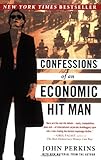This great column in the Washington Post is the most eloquent, clear, and coherent statement about the current problems at the FDA I have read in some time. The author, Susan F. Wood, is a “former assistant commissioner of the Food and Drug Administration,” so she knows whereof she speaks. In her own words:
Time and again in my travels I am asked, “What happened to derail Plan B?” I have to answer honestly that I don’t know. The manufacturer agreed to take the “controversial” issue of young teens’ access to emergency contraception off the table in 2004; now we are talking only about adult access to safe and effective contraception. Over 98 percent of adult women have used some form of contraception. So what is the objection?
What indeed. This ongoing nightmare defies explanation. The morning after pill is “not RU-486, the ‘abortion pill.'” It is a contraceptive; millions of women use contraceptives all over the world. They are legal: in fact
emergency contraception has been used as a method to prevent unintended pregnancies for decades by women who had physicians advise them on how many pills in their regular pill pack to take. So people who are comfortable with oral contraceptives as methods of contraception should be just as comfortable with emergency contraception.
Of course, that’s the problem in a nutshell. There is a small but vocal group of voters who are not comfortable with contraception at all:
Modern contraceptive inventions have given many an exaggerated sense of safety and prompted more people than ever before to move sexual expression outside the marriage boundary
A big hand for Focus on the Family folks! This is really what’s going on in all this. Certain elements within the Republican party are opposed to contraception in all forms. They aren’t able to pursue the issue openly, because contraception is very popular, so they are trying to limit it as best they can. More people need to be bringing up issues like this:
It’s been nearly three years since the first application came in to make Plan B emergency contraception available over the counter, so that women, including rape victims, could have a second chance to prevent an unintended pregnancy and the need for an abortion. How many chances have we missed? I still can’t explain what is going on here, and why women 17 and older are still denied this product in a timely way. When did adult access to contraception become controversial? And why have we allowed it to happen?
Why indeed. As a great woman once said, “women’s rights are human rights.” Let’s protect them.

